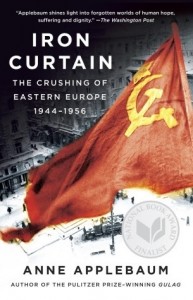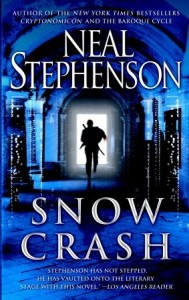 Recently I have been thinking about building the perfect library; this was due to a collection of essays I was reading called The Library at Night by Alberto Manguel. In this book, Manguel explores the process of building his personal library from an old barn but he also looks at the history of libraries around the world. Each essay is titled ‘The Library as…’ space, power, shadow, and so on. These essays explore different topics, giving you a wealth of information. Take for example ‘The Library as Shadow’, which explores a darker side of library history, from book burning to censorship.
Recently I have been thinking about building the perfect library; this was due to a collection of essays I was reading called The Library at Night by Alberto Manguel. In this book, Manguel explores the process of building his personal library from an old barn but he also looks at the history of libraries around the world. Each essay is titled ‘The Library as…’ space, power, shadow, and so on. These essays explore different topics, giving you a wealth of information. Take for example ‘The Library as Shadow’, which explores a darker side of library history, from book burning to censorship.
What I am particularly interested in was from the essay ‘The Library as Order’, which focuses on how we would arrange our personal library. It does not matter where or how you house your personal library; every person has their own opinions on that topic. I wanted to explore the concept of how we arrange the books. There are so many ways to arrange books, currently my books are everywhere and there is a certain appeal to this. I have bookshelves around the house and any new books end up wherever it fits. If I need to find a particular book, I can spend hours searching for it. This is not always ideal but there is something about this literary treasure hunt that I enjoy. I often discover books on my shelves that I have forgotten about or I want to dip back into. Looking at a shelf that offers no rhyme or reason can be mesmerising, and who does not enjoy just staring at a bookshelf? While this method works for me now, it is not practical if I have a library, I need to arrange my books differently. In The Library at Night, Alberto Manguel suggests some different ways to organise books;
- alphabetically
- by continent or country
- by colour
- by date of purchase
- by date of publication
- by format
- by genre
- by literary period
- by language
- according to our reading priorities
- according to their binding
- by series
Amidst all of these choices, I have to admit ‘according to our reading priorities’ does sound appealing but I feel like this would continually change. The obvious choice would be to organise alphabetically (by authors last name of course) but there are some draw backs with this. Not only will fiction and non-fiction sit side by side but the idea of Charles Dickens sitting next to Philip K Dick or Jane Austen beside Paul Auster seems odd. Although for those authors that dabble in both fiction and non-fiction, like Aleksandr Solzhenitsyn this system may be preferable.
Sorting by genre seems like a popular choice, and for all intents and purposes the most logical. As someone that reads on a whim, the ability to just head to somewhere like the detective fiction section and pick a gritty hard-boiled novel sounds wonderful. My only problem is the fact that it is often difficult to fit novels neatly into a single genre. Also, with an author like Jonathan Lethem you would have to separate his works, especially with his early books. I like the idea of sorting by genre but I found too many flaws in this system.
Picking an organisation strategy appeared to be much harder than it looked. Organising by colour is aesthetically pleasing but I never considered this as an option; it is just too random. I am playing around with a book-sorting app on my phone, which allowed me to create different shelves for organising. This allowed me to scan my books into the program and play with different ways to organise.

I eventually decided that there was no perfect way to organise a library, you can go into your public library and see evidence of this everywhere. I had to come up with a solution that worked for me. I do not have a library yet, but when I do, I am now sure I know how it will be organised. I have settled on sorting by continents for my fiction, this is because I have a keen interest in books in translation. I have discovered that splitting my fiction into continents will give me the opportunity to see where my strengths and weaknesses lie. If I organise my fiction by continent, I will notice which continents I need to focus on, like South America and Africa. I love reading around the world, I find it both an educational and rewarding experience.
If your reading journey and your library is a personal reflection, then the books that do not appear on your shelves say just as much about you as the books you do have on your shelf. When I became a reader, I quickly started building my book collection to a point where I have shelves and shelves of books everywhere. The problem I face now is the fact that I have only read about half of them. Publishers sent me books because of my blog but I also purchased books that sounded interesting. Now I have evolved as a reader and discovered where my literary tastes lie, there are books that remain on my shelf that are not a reflection of me as a reader. These books do not tell you anything about me because I have no desire to read them. While I know I should cull all books I have no interest in, it is hard to let go of a book that you have never read. What if it is fantastic and I just do not know that yet? There is the problem, but I do feel like I am getting to a point where I can be confident about a book I would not like. So maybe a purge is coming.
Now the problem with sorting the fiction by continents is that there are some countries I have a greater interest in – the literature of France and Russia for example. Do I split them into their own section? I am interested in all post-Soviet literature, so that brings up another question. How do I shelve these books? Russia seems too exclusive; calling them post-Soviet countries just does not sit right with me; Baltic and Slavic countries do not cover all the countries. This is one problem I need to solve, but for now I think this is the best choice for me.
Another issue I found with sorting by continent is that the United Kingdom and the Republic of Ireland fall under Europe but they do not feel the same. There is so much literature from the United Kingdom anyway, I feel like it would require its own shelves. I wonder about North America but honestly, does it matter if Canada and the United States sit together? For me it does not, although this may displease my Canadian friends. There are so many things to consider and this is only a small fraction of the problems I face with sorting my books.
When it comes to non-fiction, it was not difficult; this was always going to be sorted by subject. Philosophy, history, Russian history, books about books, art, and so on. However, that posed some interesting questions as well. Do you include philosophical novels like The Stranger by Albert Camus or Either/Or by Søren Kierkegaard in the philosophical section? My feeling is yes but where do you draw the line? There are novels that are philosophical in nature that I would not include under philosophy, like The Brothers Karamazov by Fyodor Dostoevsky.
I will continue to ponder just how I would organise my dream library, but I wanted to give you plenty to consider. Instead of reviewing The Library at Night by Alberto Manguel, which everyone should read, I preferred to explore what I got out of this essay collection. I have not even touched on any of the other topics in this book; I will leave that for you to discover. Also, I have not even talked about other aspects of setting up a library, like using the Dewey decimal system, or a card catalogue system. Thinking about setting up a dream library is an exciting activity for every bibliophile and we all have different ideas. I loved reading about someone’s journey and it gave me plenty to contemplate. For now, I will continue cataloguing my books using the app BookBuddy and working out how to organise everything. This experiment should also help me discover the gaps in my own library so I can pick better books to purchase.

 Title: Iron Curtain : The Crushing of Eastern Europe, 1944-56 (
Title: Iron Curtain : The Crushing of Eastern Europe, 1944-56 ( Title: Smoke Gets in Your Eyes: And Other Lessons from the Crematory (
Title: Smoke Gets in Your Eyes: And Other Lessons from the Crematory ( Title: The Forgotten Rebels of Eureka (
Title: The Forgotten Rebels of Eureka ( I love my blog, I’ve been very proud of it and I can’t think of anything better. I like to spend my time playing with it, slowly improving it and writing posts for it. I don’t make money off my blog but it is a real passion of mine and something I plan to continue for a very long time. Recently I read a fantastic article on
I love my blog, I’ve been very proud of it and I can’t think of anything better. I like to spend my time playing with it, slowly improving it and writing posts for it. I don’t make money off my blog but it is a real passion of mine and something I plan to continue for a very long time. Recently I read a fantastic article on  Title: Middlesex (
Title: Middlesex ( Title: Encyclopedia of a Life in Russia (
Title: Encyclopedia of a Life in Russia ( Title: Careless People (
Title: Careless People ( Title: Snow Crash (
Title: Snow Crash ( Title: Wolf Hall (
Title: Wolf Hall (